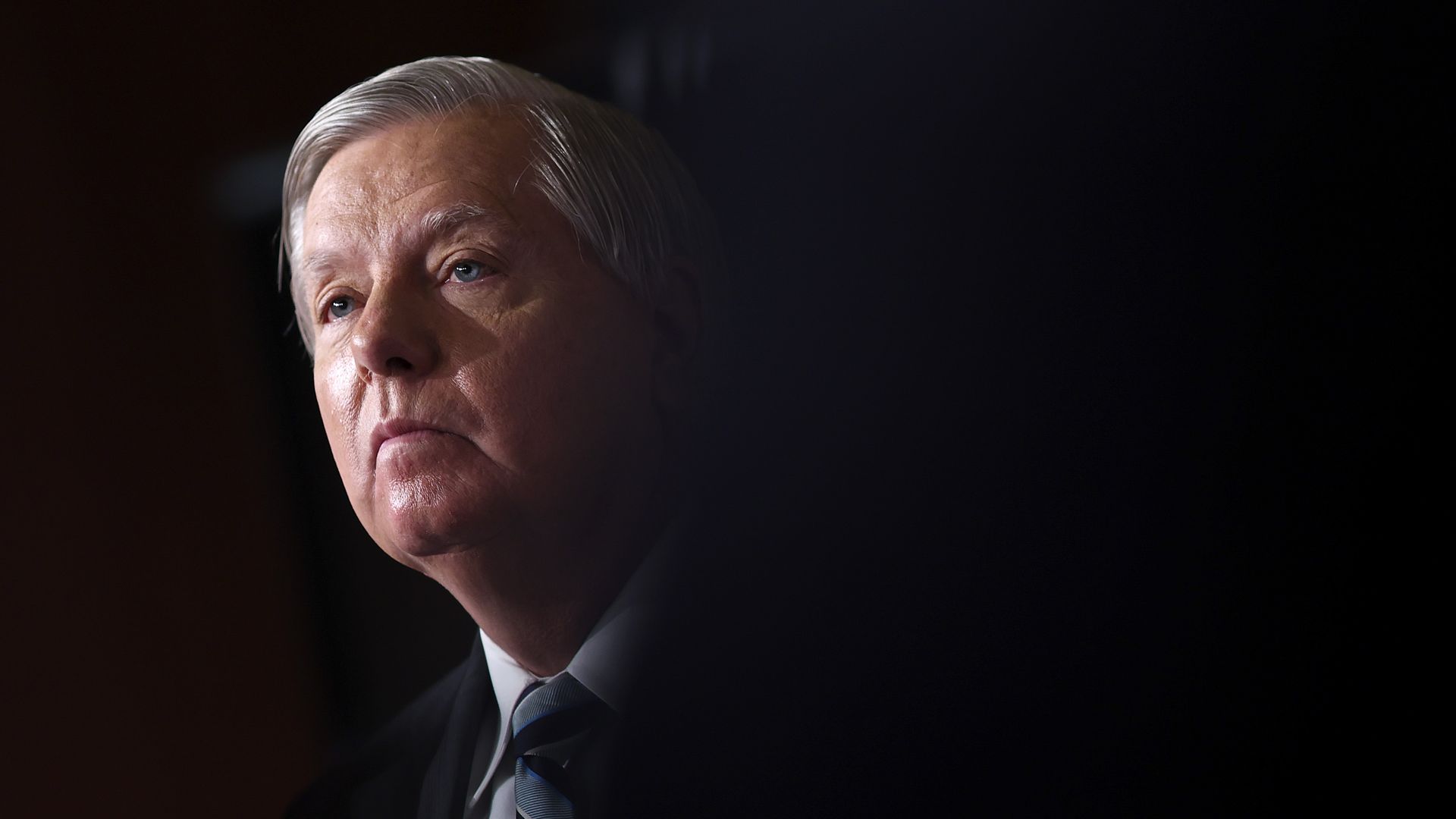Sep 1, 2022 - Politics & Policy
Judge rules Sen. Graham must testify in Georgia 2020 election probe
Add Axios as your preferred source to
see more of our stories on Google.

Sen. Lindsey Graham (R-S.C.) in Washington, D.C., in August 2022. Photo: Kevin Dietsch/Getty Images
